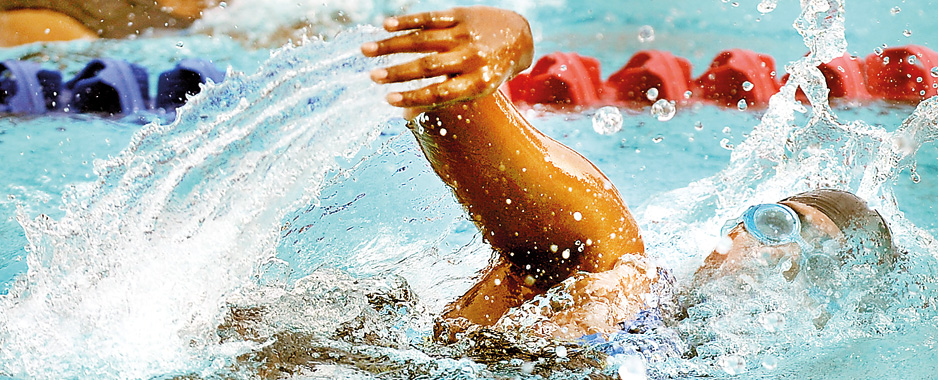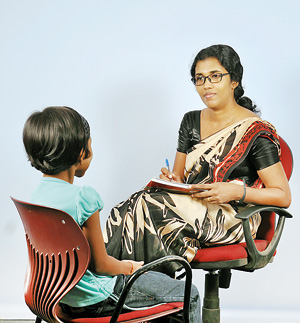Sports can be stressful too
She was a top teenage swimmer managing both her skill and success in the water and her lessons in the classroom very well. Suddenly, however, there was a drastic change in her behaviour. She became irritable and quarrels were aplenty not only with her siblings but also her mother. Her swimming performance began to slide as also her school grades.

Sports challenges a person both mentally and physically. File pic
Fortunately, her mother who realized all was not right did what should be done in such circumstances – she brought her to Team Physician and Sports Psychologist Dr. Sumudu Vipulaguna Rajasinghe of the National Hospital in Colombo. Quick to point out that whoever comes to her are ‘clients’ rather than ‘patients’, Dr. Sumudu not only took a detailed history but also had an in-depth discussion with the swimmer to get an insight into what had changed in her life.
What Dr. Sumudu uncovered as a Sports Psychologist enabled the girl to get back on track again. “The swimmer who was a bright student doubted herself. With both the Ordinary Level examination and a major national sports event drawing close and her family’s expectations riding high, she was assailed by doubt. Can she achieve, she was asking herself, with aggravation of the situation by a lack of time management.”
A small alteration, a mix of basic therapy and counselling made a difference in the swimmer’s life, says Dr. Sumudu whose passion for basketball shot her into leading the team of the University of Colombo, making her undergo similar situations as an undergraduate. She had also been heavily involved in athletics, netball and chess while in school.
“As a sportswoman, I realised the importance of the psychological component and this helps me understand the situation of excellent athletes who are also bright students academically,” she says. This is why she has specialized in ‘Sports Psychology’, a branch of Psychology.

Dr. Sumudu Rajasinghe with a young 'client'
Delving into studies carried out in the 1890s in North America, Dr. Sumudu says how cyclists came under the microscope. In those studies, timings were recorded when the cyclists rode alone and as pairs. The “mere presence” of someone else improved the timing of the pairs over the soloists. This established a link between sports/exercise and psychology.
“This was the origin of sports psychology which later branched into several sub-specialties, with the main objective of improving performance,” she points out. “Sports challenges a person both mentally and physically. There is much anxiety and also a need to avoid distraction. People have to be motivated and especially for schoolchildren the balance between sports and studies is vital. Time management is also crucial.”
She picks out gymnastics which also has a “danger” component where the sportsman or woman needs to make up his/her mind on how to deal with it. They need to learn the skills, stick to rigorous practice regimens and be prepared mentally. “We equip them with psychological techniques to cope with this and overcome negative thoughts.”
In competitive sports where a person may be taking part in a series of events, each event has a 50-50 chance of bringing about triumph or defeat. Therefore, the athlete needs to keep his/her equilibrium and even if there is defeat in one, make up his/her mind within a short time and go onto the next, it is learnt.
Then there is also the reality of suffering an injury and being off the field for a long time. Here too the care of a multidisciplinary team which includes a surgeon, a physiotherapist and a psychologist is important in the rehabilitation process. Moving onto pre-performance anxiety, Dr. Sumudu explains that this is situational anxiety and a ‘condition’ not a ‘disease’. However, due to other problems, this can develop into stress. Then certain relaxation therapies will help overcome performance anxieties.
Physical components can manifest in a person due to a psychological impact, it is learnt, as both mind and body are linked.
Urging coaches, teachers and parents not to cause psychological issues by putting undue pressure on children who are into competitive sports, Dr. Sumudu says irritability, abdominal pain, diarrhoea, vomiting, headache and even muscle tension which would promote injury could have underlying psychological causes.
It is not only with sportsmen and women that Dr. Sumudu’s skills come in handy but also among others who may need ‘exercise psychology’. In the light of the rising incidence of non-communicable diseases, she can motivate office-workers and professionals as well as housewives to engage in physical activity which would be good for their health.
Coming under ‘motivational intervention’, she encourages people to use the stairs instead of going up or down in the elevator and maintain an exercise regimen and reduce weight as a habit, by incorporating lifestyle modifications into day-to-day activity
She also tackles the flipside which is exercise addiction and eating disorders and reaches out to those obsessed with exercise or dieting.
| From relaxation to positive self talk Depending on the need of each client, Dr. Sumudu Vipulaguna Rajasinghe tries different approaches which include: Relaxation – progressive muscle relaxation. Imagery – imagining how one can engage in a competitive sport to secure success by seeing it in the mind’s eye like a film and then performing the same way when the time comes.Positive self-talk — to remove negative feelings and assure oneself over and over again that “I can do it”. This may be carried out by recording one’s own voice and replaying it through headphones | |


